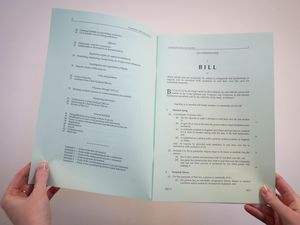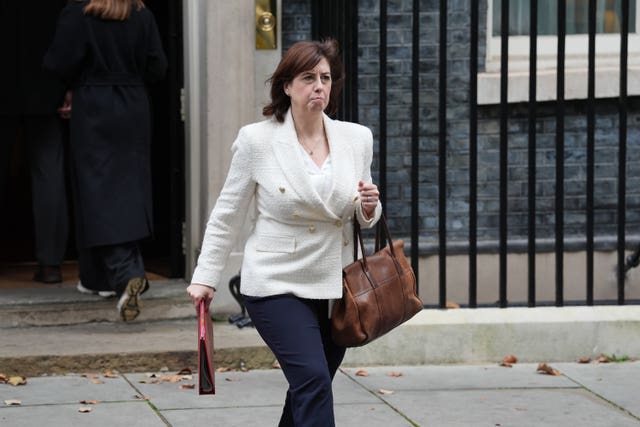Minister: Publishing assisted dying Bill impact assessment soon ‘a challenge’
The Terminally Ill Adults (End of Life) Bill will come back to Parliament for its report stage on April 25.

Efforts are being made to ensure MPs have “ample time” to look at an impact assessment into the assisted dying Bill before it returns to the Commons next month, a minister has said.
But Commons Leader Lucy Powell added that, given how much the proposed legislation has changed since it was voted on in November, publishing it soon “will be a challenge”.
The Terminally Ill Adults (End of Life) Bill will come back to Parliament for its report stage on April 25, when MPs are expected to vote on further amendments.

If time allows on that date, MPs could also vote on whether to approve the Bill at third reading – its final stage in the Commons – and to send it to the House of Lords for further debate.
The Bill has undergone two months of scrutiny by a 23-member committee of MPs, during which time it has been “considerably amended”, Ms Powell said.
The committee finished its scrutiny with a late-night session this week, voting through various amendments including replacing High Court judge approval of assisted dying applications with expert panels.
The Bill also now imposes a duty on a secretary of state in England and give power to ministers in Wales, where health is devolved, to ensure the provision of voluntary assisted dying services.
The maximum timeframe within which a law would have to be fully in place after the Bill was passed was also extended from two years to four, potentially coinciding with the end of this Government’s parliament in 2029 if the Bill was passed later this year.
Ms Powell said there had been more than 100 amendments made to the Bill since it passed its second reading in a historic vote last year.
Labour MP Laurence Turner, who voted against it on that occasion, said the draft legislation “has been substantially changed” during the committee stage.
Speaking in Parliament on Thursday, he called for an “update on when the House may see the impact assessment for that Bill”.
He asked: “Can the Leader give an assurance that sufficient time will be available for members to consider that analysis before we get to the Bill’s remaining stages?”
An impact assessment looks at economic, social and environmental impacts of a Bill, including the likely costs and benefits and the associated risks.
Ms Powell replied: “The committee stage of this Bill ended this week. The Bill has been considerably amended, I think they’ve accepted over 100 amendments from both sides of the debate.
“The Government is committed to ensuring that the impact assessment is available for members in good time before report stage of the Bill, but I’m sure he can recognise that given how much the Bill has been amended, that will be a challenge.
“But we will do our very best to make sure that members have ample time as possible to look at it.”
It has been suggested some MPs who supported the Bill last year could change their stance when it returns for a further vote in the coming months, after the change to the High Court safeguard.
But Kim Leadbeater, the Labour MP behind the Bill, has claimed it is now “safer, fairer and more workable”.
The Bill proposes that terminally ill adults in England and Wales with fewer than six months to live should be legally allowed to end their lives, subject to approval by two doctors and an expert panel featuring a social worker, senior legal figure and psychiatrist.





